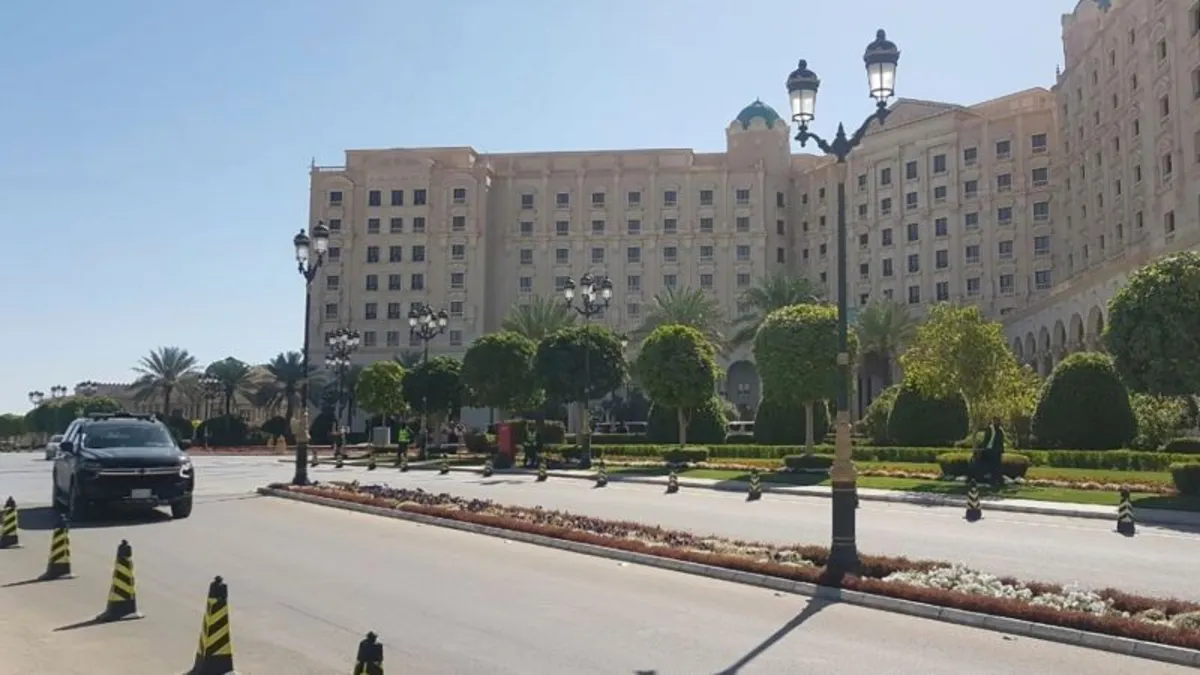
A United States delegation, led by real estate tycoon-turned-diplomat Steve Witkoff, has commenced crucial discussions with Kremlin negotiators in Riyadh, Saudi Arabia. This meeting is part of the Trump administration's ongoing efforts to facilitate a ceasefire between Russia and Ukraine. According to Russia’s TASS news agency, talks began on Monday morning, citing an unnamed source familiar with the discussions.
The timing of this meeting is significant as it follows a productive meeting between a U.S. team, led by President Donald Trump’s Kyiv envoy, Keith Kellogg, and Ukraine’s Defense Minister, Rustem Umerov. Umerov described the discussions as “productive and focused,” raising hopes that initial positivity could pave the way for a 30-day ceasefire and longer-term negotiations. However, a substantial gap in expectations remains between the U.S., Russia, and Ukraine.
Recent events have escalated tensions further, with a series of Russian drone attacks over the weekend resulting in the tragic deaths of at least six individuals in Ukraine, including young families. In response, Moscow has accused Ukraine of targeting gas and oil facilities in Kursk and Krasnodar, even as it offered to halt attacks on Ukrainian energy infrastructure.
The Russian delegation at the Ritz Carlton Hotel in Riyadh includes prominent figures such as seasoned Kremlin diplomat Grigory Karasin and former spy chief Sergey Beseda. Beseda is perceived by many in Ukraine as a hard-nosed nationalist and an early supporter of Russia’s full-scale invasion that began in February 2022. The presence of such figures adds complexity to the negotiations, particularly given the trust deficit from the Ukrainian perspective.
Adding to the tension, Steve Witkoff's recent comments have raised eyebrows. He expressed sympathy towards many of Russian President Vladimir Putin’s maximalist positions, particularly regarding the four regions Russia seeks to formally annex: Kherson, Zaporizhzhia, Donetsk, and Luhansk. In a discussion with podcast host Tucker Carlson, Witkoff referred to these areas as “Russian speaking” and mentioned that there had been referendums indicating a desire among the local populace to be under Russian rule. These referendums, held in September 2022, were widely denounced as a sham by the U.S. and its European allies.
Witkoff questioned, “Will the world acknowledge that those are Russian territories?” He further pondered whether Ukrainian President Volodymyr Zelensky could maintain his political standing if he were to recognize this reality, framing it as a central issue in the ongoing conflict.
On the Russian side, officials have made it clear that a ceasefire is contingent upon Ukraine’s agreement not to use the pause to resupply or reorganize its military forces. Additionally, Moscow has reiterated its demands, including a firm stance against Ukraine joining NATO. In a response to these developments, President Zelensky emphasized that the onus to end the war lies with Putin, stating, “The one who brought this war must take it away.”
This situation is fluid, and as negotiations unfold, updates will be provided to keep the public informed about the latest developments in this critical diplomatic engagement.